Creating Global Ocean Education Resources
The Manta Trust aims to inspire children all over the world to learn more about manta rays, marine ecosystems and environmental conservation and to become stewards of their natural environments. Since its launch in 2015, our Marine Education Programme (MEP) in the Maldives has gone from strength to strength, educating thousands of Maldivian children through marine outreach initiatives. Working closely with local schools fosters the next generation of ocean ambassadors who will become stewards of their island nation’s environment.
In 2020, the Manta Trust decided to expand our educational outreach globally. Throughout 2020-21 we have been working on an exciting new project, supported by the Save Our Seas Foundation and the Ernest Kleinwort Charitable Trust. In my new role of Education Manager for the Manta Trust, I have spent this time creating engaging, multi-subject lesson plans, to be used by educators worldwide to teach their students about the ocean and its glorious inhabitants.
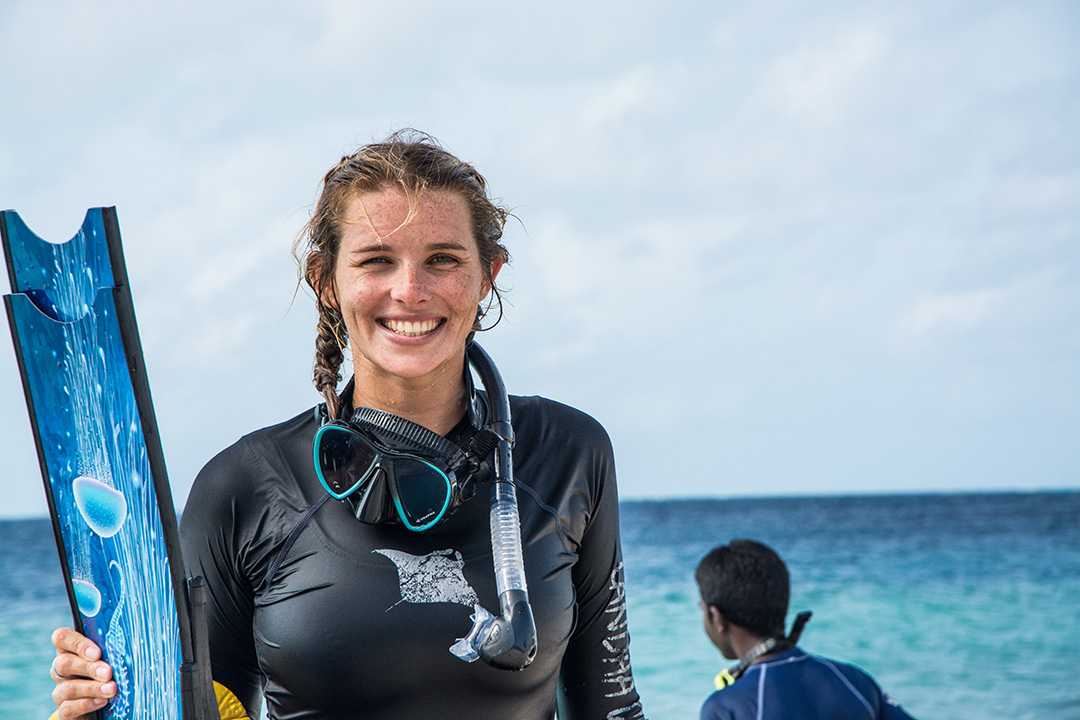
Flossy ran the Manta Trust’s Marine Education Programme in the Maldives for several years before returning to the UK to take on a role expanding our educational outreach globally. Photo by Simon Hilbourne | © Manta Trust.
As any effective conservation project should, we began by speaking to the most important stakeholders – the educators. We distributed a questionnaire to educators worldwide and received an incredible 500 responses from people teaching in 30 countries. The results showed that educators are interested in teaching environmental topics but often lack the resources or support to do so. Fifty-seven per cent believe there is not enough teaching about environmental sustainability in their school, whilst many commented about their enthusiasm for this project: “[this is] a great initiative to get everyone on board… I personally think it is the need of the hour.”
The questionnaire results helped us to gain a wealth of knowledge about:
– Common features across different curriculums
– Educators’ needs and resources that they are lacking
– The importance of providing educator training
– Enthusiasm for connecting students with real researchers and scientists
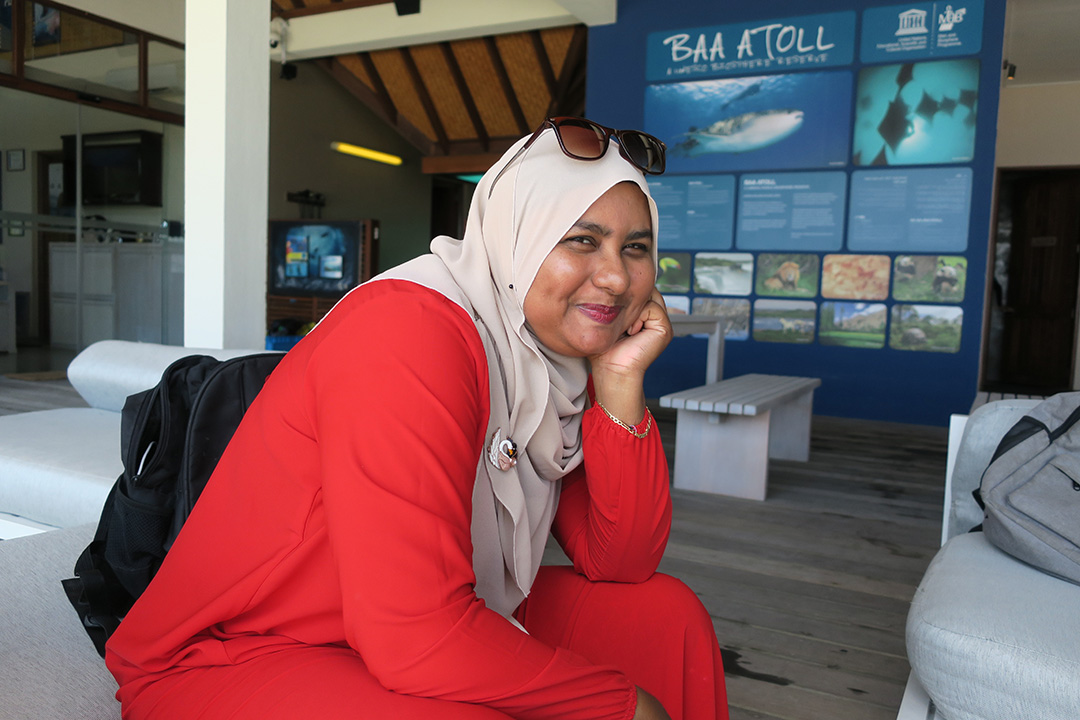
Ifaasha, one of many teachers we have worked with previously who have helped develop this project by completing our educator questionnaire. Photo by Flossy Barraud | © Manta Trust
The comprehensive feedback we received from the questionnaire has allowed us to develop 17 lesson plans spanning 14 subjects – from science and maths to physical education and cooking. We know that for conservation to be effective it must be interdisciplinary and believe this should be taught from the outset. By creating ocean-themed languages or literacy lessons, students will gain a well-rounded knowledge base and build compassion for the oceans across all subjects. The lesson plans also incorporate the International Ocean Literacy principles, common curriculum concepts and the Sustainable Development Goals, making them applicable to schools teaching varied concepts far and wide.
These resources are currently being crafted into a booklet and will be available for download from our website in July 2021. But we won’t stop there. Next up, we are creating educational videos, translating the resources into at least four languages, and developing teacher training webinars to complement the materials and ensure usability.
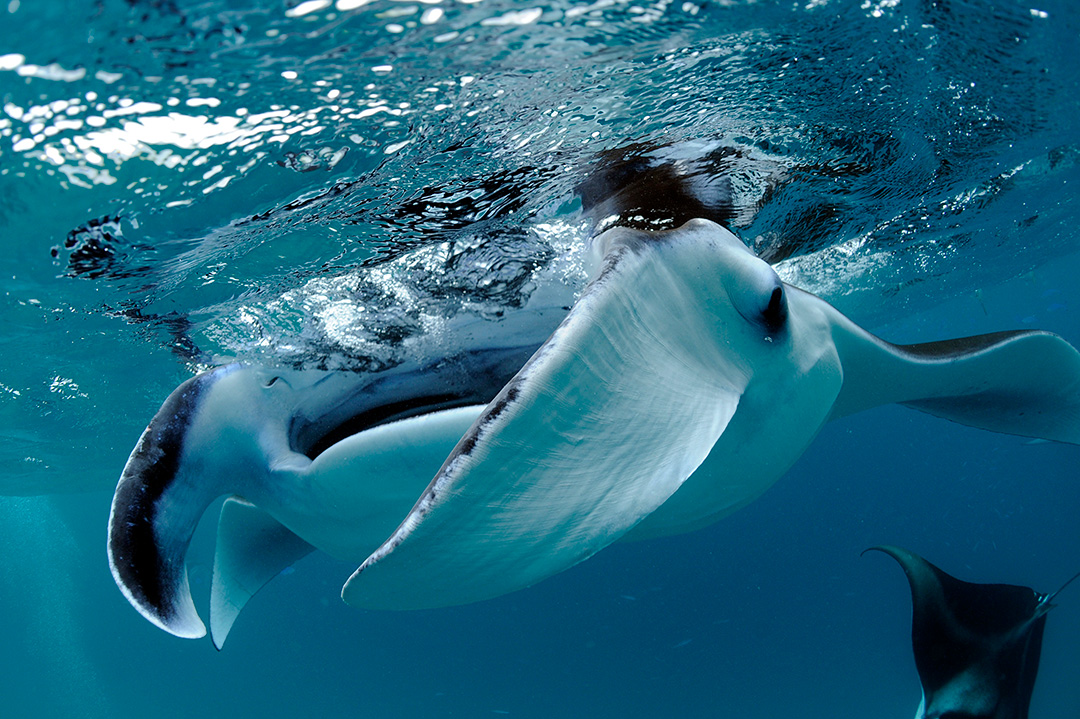
Our educational resources cover a wide range of topics to make children more ocean and climate literate. Of course manta rays feature in some of our activities! Photo © Guy Stevens | Manta Trust
Alongside this, we will continue to expand our virtual ‘Introduction to Marine Biology’ classes. We want to increase our work with schools in the UK, and especially with pupils living in disadvantaged areas, many of whom have never visited the beach before and are poorly represented in marine science fields. Despite lockdowns, we have managed to reach almost 500 students from five schools (and counting!) for virtual yet highly interactive classes, with teachers regularly commenting on the importance of sessions like these:
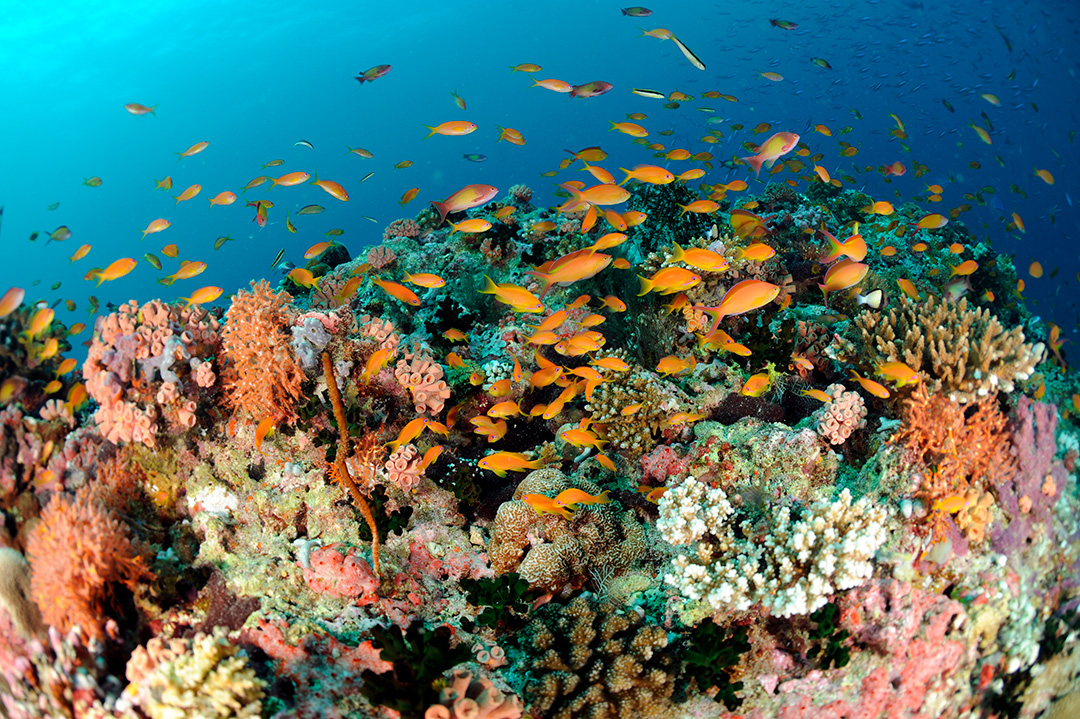
During 2021 we started offering virtual marine biology classes to schools in underprivileged areas to increase student exposure to environmental career opportunities. Photo © Guy Stevens | Manta Trust.
Our ambition now is to greatly expand our outreach by developing an education strategy that will benefit people (especially children) from all backgrounds, all around the world, and help to build more in-country capacity in mobulid range states. Slowly but surely, we will continue to inspire a generation of ocean guardians.
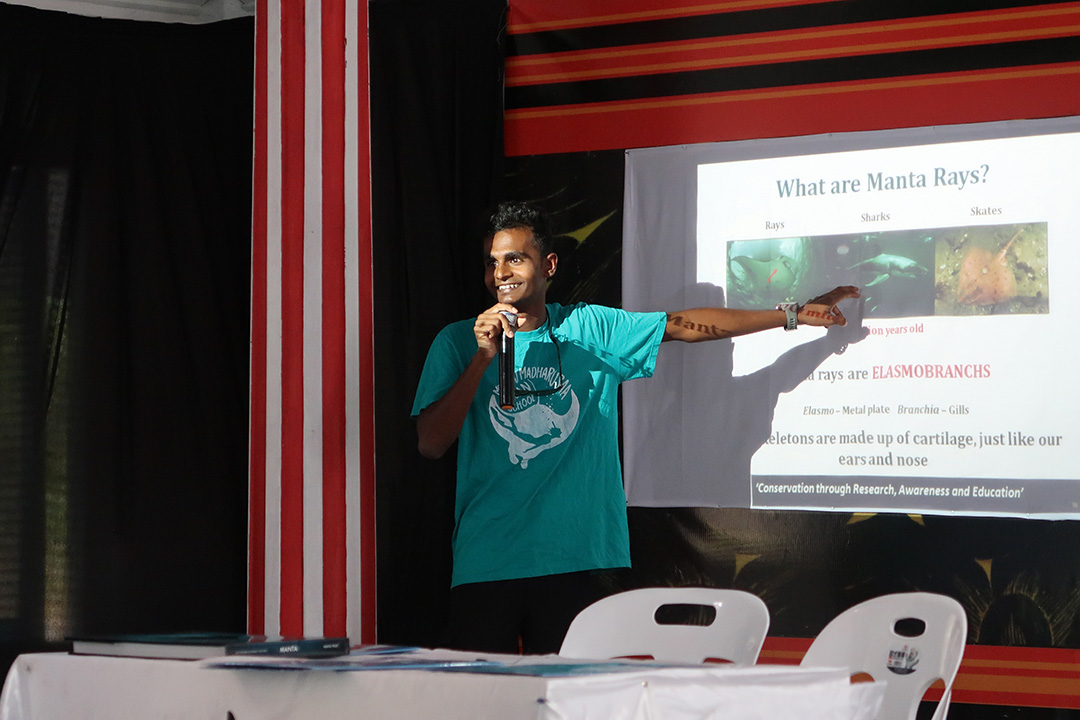
Yaniu running an educational session for children in the Maldives. We hope it will be possible to run sessions like these in many other countries soon. Photo © Manta Trust
You can find out more about our educational activities on our website: www.mantatrust.org/kids-club
